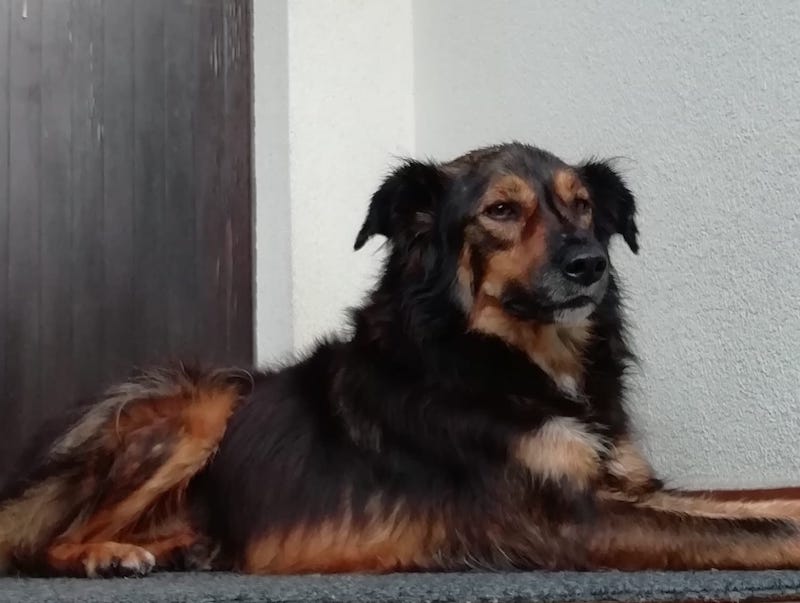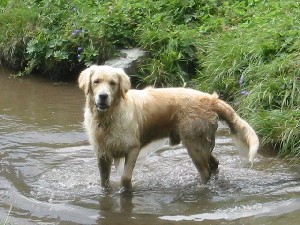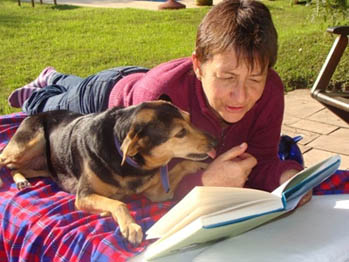
Carla is Italian friend who lives in Skopje, with a long experience in Emergency Medicine. Silviaexpat asked her to explain what small risks of infection or other factors may occur in case of passionate cohabitation with our four-legged friends who share with us the joys (and pains) of expatriation…
Let’s have a look at the relationship between pets and health.
Perhaps the least pleasant aspects of having pets in the house are related to the diseases that they can transmit, the so-called “zoonoses transmitted from pets”.
In order not to create unnecessary alarm, it is best to emphasize that, while the number of domestic animals and of close contacts between pets and family members grow, “pet-acquired” zoonoses are quite rare. They’re not easily recognized, though. Symptoms are often fuzzy, but they frequently have a self-limiting course, and tend to resolve themselves spontaneously.
The main culprits of zoonoses are dogs and cats. Other animals like small rodents, aquarium fish, birds and reptiles are responsible for a small percentage of cases.
But what are these zoonoses and what precautions should we take?
Here we will consider only a few of the most common diseases. For more detailed information on symptoms and treatments of other possible infections you need to refer to your doctor and / or vet.
Intestinal parasites
 Let’s start with intestinal parasites, that is to say those “germs” that quite often live in the intestines of dogs and cats. It is believed that 50% of our dogs are hosts to at least one intestinal parasite. 15% of them actively free the Toxocara canis with their feces. The infection brought about by this parasite in humans is diagnosed rather frequently. In most cases its course is sub-clinical. In children, symptoms may include fever, cough, skin rash and slower growth, which are not always linked to their pets’ parasites.
Let’s start with intestinal parasites, that is to say those “germs” that quite often live in the intestines of dogs and cats. It is believed that 50% of our dogs are hosts to at least one intestinal parasite. 15% of them actively free the Toxocara canis with their feces. The infection brought about by this parasite in humans is diagnosed rather frequently. In most cases its course is sub-clinical. In children, symptoms may include fever, cough, skin rash and slower growth, which are not always linked to their pets’ parasites.
Another parasite (larva migrans) can infect the skin through contact with dirt contaminated by the feces of the infected animal. The result is a dermatitis with itching and redness. The course of the infection is usually self-limiting, and can be shortened with an appropriate topical therapy.
Felines
Moving on to our feline friends, they can be carriers of Toxoplasma, which causes the well known toxoplasmosis. It is a disease that can be caught in 3 different ways:
- Eating raw or undercooked meat, especially pork
- Ingesting cysts of the parasite contaminating the feces of cats or other wild animals
- Trans-placental
This last mode of transmission has been known to cause birth defects in the unborn child. However, it is true that the majority of children infected do not show significant abnormalities. During pregnancy contact with cats should still be limited, especially with their feces.
Other bacteria
Talking about bacteria, I would like to mention the Campjlobacter jejuni, which is a frequent cause of diarrhea in humans. It may infect, among others, even dogs and cats.
A human infection passed on to a domestic puppy is actually quite a rare occurrence. However, people and animals with the same symptoms in the same household should raise suspicion of a pet-acquired zoonosis. In these cases it is good to increase personal hygiene, restrain (if possible) the child-animal contact and avoid all contact with animal feces.
Another interesting bacterium is the streptococcus. It can be transmitted by infected pets to humans. So be careful because a recurrent streptococcal pharyngitis, documented by a throat swab, may originate from house pet. Should this be the case (after consultation with the vet), our “friend” should be subjected to antibiotic therapy as well as the infected family members.
Uninvited guests
What about the uninvited guests that our friends bring home? Remember to periodically check the fur of your pet because it could contain ticks and fleas. In this case, you should remove these parasites that can infect humans and spread other diseases, as well as being bothersome to our four-legged friends.
 Animal bites
Animal bites
Animal bites deserve a separate mention. It can happen that our “friend”, especially when provoked, responds by biting a child or its “master.” Dogs are most active in this regard, accounting for 70-90% of reported animal bites, while our cats are less “reactive” (3-15% of bites). However cat bites are precisely the ones that are often complicated by infections in the torn tissue. What should we do in the event of animal bites?
First of all, thoroughly wash the wound and cover it with gauze (sterile if possible). Then consult a doctor, especially if the wound is deep. In this case it is necessary to evaluate its depth and the integrity of joints, tendons, muscles and blood vessels. If the risk of infection is high (due to which animal was involved and / or the type of wound), it might be necessary to start an appropriate antibiotics therapy.
As always, in these cases it is essential to be immune to tetanus.
 Rabies
Rabies
At this point a disgression on rabies is worthwhile.
This disease, although relatively rare among domestic dogs and cats, is spreading among wild animals. As a result, each animal bite for which documentation of anti-rabies vaccination is not available must be a cause for alarm.
The general rule is as follows: until proven otherwise, that is, until you can prove that the animal in question does not have rabies, it should be regarded as suffering from this disease.
How does one determine whether or not the animal has rabies?
If you can isolate and capture the animal responsible for the bite, there are usually two ways:
- 10 days of quarantine and observation of behavioral changes
- an examination of his brain after death.
If it is not possible to ascertain the “state” of the animal, the victim should be subject to anti-rabies therapy.
In order to understand the policies on anti-rabies therapies and the kind of control existing on the local canine and feline population, you should consult the competent authorities upon arrival in your host country.





